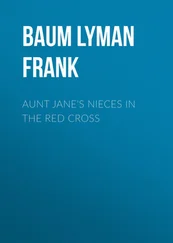Whatever you may hear or read about me in the coming weeks, please please do not dwell on the argument we had in my kitchen, with the taxi waiting outside and your suitcase packed by the door. Think instead of the night we spent together in my creaky bed, holding each other with tenderness and passion. That was me too. When I was young, people were always leaving without explanation. Most never returned. I have forever hated the sound of closing doors and the view of people’s backs. Perhaps I can’t be counted on, but I can be trusted; I hope you can see the difference. So trust my heart, Peter, and forget what comes out of my mouth. Remember how we held and touched each other. Leave if you must, but I beg you, don’t ever abandon me.
Your loving Svetlana
PART FIVE

On November 16, 1984, flanked by officials from the Soviet Foreign Ministry, Svetlana Alliluyeva appeared as the surprise star of an international press conference at the Moscow offices of the Soviet Women’s National Committee, gripping her prepared remarks with both hands in an unsuccessful effort to keep them from shaking.
And thirty-two hours later, across the globe in Princeton, New Jersey, Martha Horvath is well asleep by the time that Nightline— the late-night news program on which video footage of this “historic Soviet news event” first airs in America—comes on. The television in our house is located in the “family room” on the ground floor; and it is in there alone, with a drink in his hand, that Peter Horvath struggles to absorb the reality of what the woman he loves is saying, and what, in fact, she has gone and done.
The Kremlin has provided its prized propaganda trophy with an official translator—a poor, cowed woman in a female-comrade necktie is visible at the right of the screen—the better to control the Party’s Cold War message. Svetlana, however, has apparently decided to stage-manage her self-destruction in her own fashion. And so she delivers her remarks first in Russian, and then, in a strangely forced and emotionally unstable voice that seesaws between defiance and uncertainty, as if she both despises the lies she’s spouting and dares the world to call her on them, she reads them aloud herself in English:
“I, Svetlana Alliluyeva, and my son Yakov Evans, voluntarily renounce our American citizenship in order to live permanently in the Union of Soviet Socialist Republics. We are doing this in order to rejoin my two older children to live, finally, as a unified family, all my children together, as we should, free from corrupt influences of lawyers, businessmen, publishers, politicians, and intelligence agents who, during my unhappy and regretful years in the West, attempted to turn my name and the name of my father into nothing more than a sensational commodity. My children need me, and now I am here.”
The experience of watching this scene unfold (only vaguely aware that it took place yesterday and is already history) is such a shock to my system that even after downing the rest of my drink, I find I am able to understand what’s happening on the television screen only in discrete units of perception. First is Svetlana’s physical appearance, so changed from the woman I made love to just weeks ago in her drafty bedroom in Cambridge that for several moments my brain refuses to accept that this is the same person. But it is the same person—that is a fact. The transformation begins with her hair, which, while still mostly rusty red, is chopped mannishly short and worn now parted to the side in the manner of the good Party soldier she is warring with herself to be. An effect deepened by a new pair of wide-framed steel eyeglasses of a distinctly sexless, Politburo style, and a heavy, brown wool suit. Her feet aren’t visible to the camera—she is seated behind a table on a dais, flanked by the unused translator and an unidentified Party member—but it is no difficulty to imagine her sporting a pair of thick-soled Soviet clunkers. Her face too (or perhaps this owes more to the Communist decor and institutional lighting) is paler and fleshier than I remember, with a rote, mechanical quality to her expression that seems to willfully deny the vitality, intelligence, and passion of the complex woman I believed I knew.
—
Is the Kremlin treating her like a celebrity? Or a puppet?
Both, of course.
Does she realize this herself?
From such great distance, helpless and stupid as I am, there is no honest way—other than the faintly trembling actor’s script in her hands and the artificial eddies of her voice—to tell.
Because for all that is said at this charade of a press event, it’s what she doesn’t say that will keep me awake this night and others, and that more than once in the latest, darkest hours will send me back to the kitchen for another dose of alcohol.
—
She and Yasha had actually arrived in the USSR two weeks earlier. (Dick Thompson confirmed this for me.) Yes, two profoundly awful, Kremlin-authored, sequestered weeks spent in the Hotel Sovietsky in Moscow. Enough time, certainly, to realize that her entire maternal re-defection dream was a terrible mistake.
She would have felt it from the plane window as they circled Sheremetyevo before landing: snow suffocating the land. In no homecoming fantasy she’d ever had, had it ever been winter. But it was winter now, what they call a Russian autumn. Fur-collared overcoats on the officials waiting for her by the terminal’s VIP entrance. Bouquet handed to her by the female comrade (“Welcome home!” without a smile, as if smiles cost rubles), the flowers already wilting under the invisible weight of ice crystals in the air. The route into the city, kilometer after kilometer of apartment blocks like hideous, gargantuan prisons built by Khrushchev and the others. She did not recognize any of it—yet she did ( Lubyanka Lubyanka Lubyanka ). The recognition lay in her heart, which at this much-anticipated moment of historic reentry felt nothing at all, and which only now did she understand she had confused with some different, untreatable longing in herself.
Still, she refused to give up hope for a better beginning. She’d told Josef not to meet her at the airport—too much pressure and publicity—but she was certain that he and his family would be waiting for them at the hotel.
In the back of the Chaika limousine, heat blasting over her knees, she glanced at Yasha. He was staring out the window at the unwinding line of massive, identical “fortresses of the people” and concrete plazas blanketed with soiled snow.
“Josef and his family will be waiting to greet us,” she said, as much to soothe herself as to reassure him.
He ignored her.
“You have been assigned a luxury two-bedroom suite,” said the official perched tensely on the jump seat across from her. “Hotel Sovietsky is the finest, most expensive hotel in Moscow.”
He was speaking Russian, which Yasha would not be able to understand. And the American teenager who was her son did not turn his head, or seem to have any interest in what he could not understand. As if all that lay behind, rather than ahead of him. As if he were not in this Chaika limo in real time, but still on the incoming Aeroflot jet, circling and circling over white empty fields of a foreign country that he’d never wanted to see, never given a shit about, in the first place.
And that was when it hit her, his mother, with a certainty that left her breathless: now that they were here, they would never be allowed to leave.
—
(I am speculating, I know; how very unlawyer-like of me. But please, if you will, allow me this moment—just this once—to go now where I could not go then.)
Читать дальше













